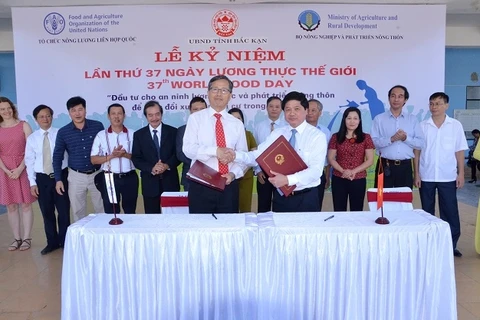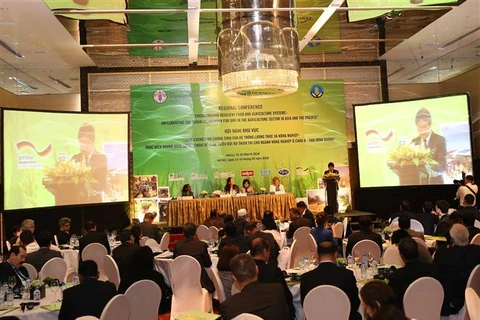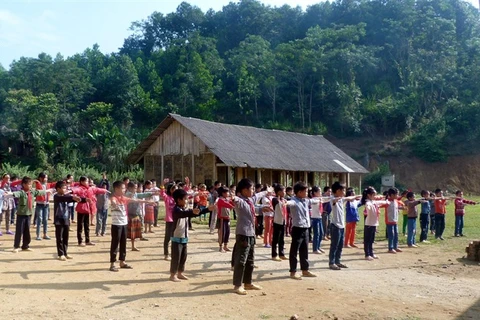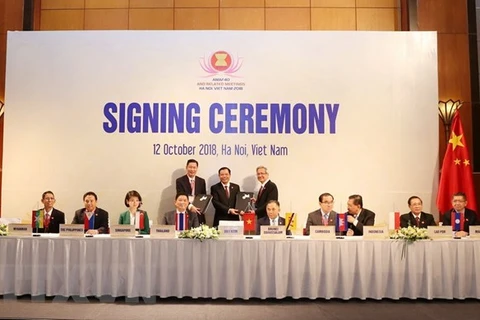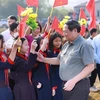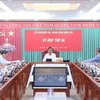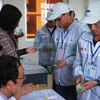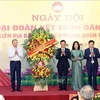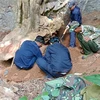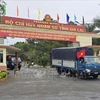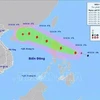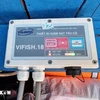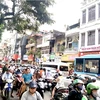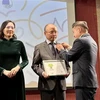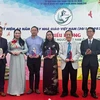 FAO Vietnam representative Albert Lieberg addresses the ceremony in Hanoi on October 16 (Photo: VNA)
FAO Vietnam representative Albert Lieberg addresses the ceremony in Hanoi on October 16 (Photo: VNA) Hanoi (VNA) – A ceremony was held in Hanoi on October 16 to mark the 38th World Food Day and 40 years of the UN Food and Agriculture Organisation (FAO)’s presence in Vietnam.
The event was organised by the Ministry of Agriculture and Rural Development (MARD) and FAO Vietnam.
This year’s World Food Day (October 16) is themed “Our Actions are our Future” and is working towards a ‘Zero Hunger World’ by 2030.
Global figures recorded a rise in world hunger and the population of malnourished people in 2017 for the third consecutive year, with a total of 821 million suffering from hunger (equal to 11 percent of the global population). Meanwhile, other forms of malnutrition have also increased, with at least 1.5 billion people having suffered from micronutrient deficiencies that undermined their health and lives last year.
The World Food Day and its ‘Zero Hunger’ goal also reflects the spirit of the FAO and the Government of Vietnam's fruitful partnership over the past four decades to transform the country from a food importer to an exporter, as well as ensure its population’s access to enough high-quality food to lead active and healthy lives.
A report at the ceremony noted that during the past 40 years, the FAO has assisted Vietnam to implement almost 500 projects to support hunger eradication; poverty reduction; and ensure food and nutrition security in areas such as crop production, animal husbandry, animal and plant health, forestry, and fisheries.
Despite significant progress, Vietnam still faces key challenges to ensuring food and nutrition security, especially in isolated areas. Meanwhile, climate change and natural disasters are becoming increasingly critical threats.
FAO Vietnam representative Albert Lieberg stated: “The people of Vietnam are an extraordinary example of a success story both in nation and economy building. Nevertheless, we need to be extremely cautious and remain on top of the current agenda of constantly changing parameters, in particular the accelerating impact of climate change that is provoking serious challenges for our lives and livelihoods as well as the increasing complexity of trade, both nationally and globally.”
He added that going forward, the FAO remains committed to supporting Vietnam to achieve the 2030 Development Agenda and SDGs, as well as remain fully responsive to national changes, including broader regional and global issues.
MARD Deputy Minister Le Quoc Doanh said that since opening its economy in 1986 with effective assistance of international partners, including the FAO, Vietnam has not only produced enough food for domestic consumption but also exported approximately 5-7 million tonnes of rice each year overseas.
Agriculture plays a crucial role in ensuring food security for nearly 95 million people in the country, and in ensuring social stability and livelihoods for almost 65 percent of rural population. It makes up 17 percent of gross domestic product (GDP) of Vietnam.
Doanh noted that Vietnam is ready to share experience with other developing nations. A wave of Vietnamese experts have brought new species and appropriate technologies to several countries in Africa, Latin America, and Asia to help carry out food security programmes.
At the ceremony, the MARD presented the “For the cause of Agriculture and Rural Development” insignia to FAO staff in Vietnam. –VNA
VNA
